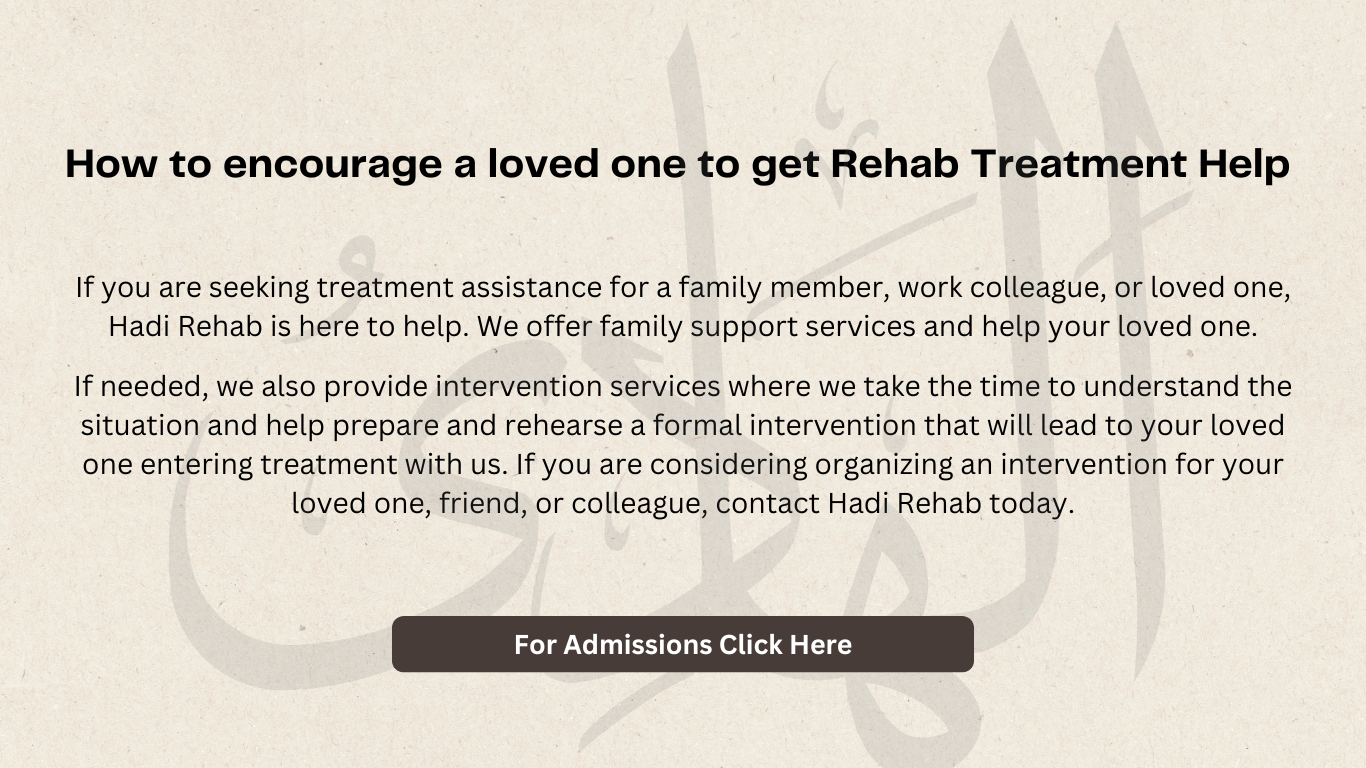Denial in Addiction
Denial is a common and often detrimental aspect of addiction. The individual you are trying to help may resist professional support or refuse to acknowledge their problem altogether. This can be incredibly frustrating and painful for family members and colleagues, who often bear the brunt of the consequences as they watch their loved one spiral further out of control. In such situations, taking no action feels like an untenable option. However, when the person struggling with addiction is unwilling to change their behaviour or accept help, it can seem like a hopeless scenario. With the right support positive change is possible. Addiction interventions can serve as a vital pathway to professional treatment, even when all hope appears lost.
What is an addiction intervention?
An addiction intervention is a specialized process led by a qualified addiction professional aimed at breaking through the denial that often hinders individuals from seeking life-saving treatment. When denial becomes a barrier, a professional intervention can effectively challenge this mindset.
Interventions for adults have a high success rate, not only in motivating individuals to enter treatment but also in encouraging them to engage fully in the recovery process. Addiction is a chronic and progressive brain disorder that can distort an individual’s perception of their situation, leading to denial and resistance—responses rooted in complex psychological and physiological factors.
These defences are not a conscious choice; they are the disorder’s way of resisting change. However, if left unaddressed, they can prevent the individual from accessing the help they desperately need, potentially leading to dire consequences.
A skilled interventionist uses proven methods to help the individual see the reality of their situation and the pain they are inflicting on themselves and their loved ones. The goal is to help them realize that their addiction is a serious issue that requires immediate attention. Ultimately, the intervention aims to guide them toward accepting their need for help and taking that crucial step toward recovery.
How Intervention Works….
1-Preparation
The first step involves family members and friends coming together as the intervention team. They gather vital information about the individual’s substance use and the impact it has on their life. Often, this team seeks guidance from an intervention specialist or counsellor, who helps them plan the intervention strategically. This preparation is crucial in setting the stage for a successful dialogue.
2-Choosing the Right Time and Place
Selecting the right time and location for the intervention is essential. The team chooses a setting where the individual feels safe and is less likely to react defensively or be under the influence of substances. This neutral supportive environment fosters openness and allows for a more productive conversation. By creating a calm atmosphere, the team significantly increasing the likelihood of achieving a positive outcome.
3-Gathering the Team
The intervention team is composed of supportive individuals, including family, close friends, and sometimes a professional counsellor. Each member prepares a personal statement that highlights how the individual’s behaviour has affected their lives. This collective effort ensures that the person receives consistent messages of concern and love, reinforcing the seriousness of their situation.
4-The Intervention
During the intervention, the team gently confronts the individual with compassion and understanding. They express their concerns and feelings, sharing specific examples of harmful behaviours and the impact on their lives. This open dialogue aims to help the individual recognize the consequences of their actions and encourage them to consider change seriously.
5-Offering Solutions
Following the discussion, the team presents a treatment plan that may include various rehabilitation programs or therapy options. They also outline the potential consequences of not seeking help, which may involve distancing themselves or altering relationships. This step is critical in helping the individual understand the urgency of their situation & the support available for recovery.
6-Encouragement and Support
The primary goal is to encourage the individual to accept help, emphasising their worth and the love surrounding them. The team must be prepared for a range of emotional reactions, including denial or anger, and respond with empathy and patience. This unwavering support can make a significant difference in the individual’s understanding and willingness to seek assistance.
7- Follow Up
At Hadi Rehab, we advise that it is very important to ask the individual for an immediate decision. Allowing your loved one time to think about accepting the treatment offer can lead to denial, avoidance, or even a dangerous binge. We are prepared to initiate treatment immediately if they agree to the plan. Once the individual consents to treatment, maintaining ongoing contact is crucial; we provide continual encouragement and support as we quickly work to make the necessary arrangements for the agreed-upon treatment plan. Any delays during this period can lead to second-guessing and may prolong the situation, ultimately making it more difficult for the individual to seek help. Acting swiftly is key to ensuring they stay on the path to recovery, and we are here to guide them every step of the way.
Crisis Intervention
 Crisis intervention is a vital service we provide at Hadi Rehab, aimed at addressing urgent situations related to addiction and mental health crises. Our focus is on individuals deemed high risk, who may exhibit behaviors threatening their safety or the safety of othersThis includes instances of domestic violence, uncontrollable anger, or actions that in still fear in family members due to unpredictability. Such behaviours often stem from the interplay between addiction and underlying mental health issues, leading to a loss of control.
Crisis intervention is a vital service we provide at Hadi Rehab, aimed at addressing urgent situations related to addiction and mental health crises. Our focus is on individuals deemed high risk, who may exhibit behaviors threatening their safety or the safety of othersThis includes instances of domestic violence, uncontrollable anger, or actions that in still fear in family members due to unpredictability. Such behaviours often stem from the interplay between addiction and underlying mental health issues, leading to a loss of control.
To effectively manage these situations, we engage family members in a structured intervention meeting. This collaborative approach is crucial, as the individual may not be capable of making sound decisions for themselves. Family members often face difficult choices, and our specialist team is here to guide them through this challenging process.
Once a carefully crafted intervention plan is in place, we take the necessary steps to bring the individual to our rehab facility with the assistance of the family. Our professional team assists them step by step with the agreed-upon treatment plan, ensuring the process is as smooth and distress-free as possible.
At Hadi Rehab, our primary goal is to provide compassionate support during this critical time, guiding individuals on their path to recovery with the resources and assistance they need to regain control of their lives.
When To Intervene For Someone, You Love:
It is important to know when is the right time to intervene in someone’s addiction.
Left untreated addiction can quickly spiral causing lasting consequences to the sufferers physical and mental health, it can also result in death.
It is vital to recognise the warning signs and quickly ask for help to get the person into treatment.
Here are some key signs that indicate it’s time for an urgent intervention:
- Declining Health: Noticeable deterioration in physical or mental health.
- Consequences of Behaviour: Experiencing significant life impacts, such as job loss, losing a driving license, or relationship breakdowns.
- Risky Actions: Engaging in dangerous behaviours, like caring for children while under the influence or driving while intoxicated.
- Aggression or Violence: Exhibiting aggressive or violent behaviour towards themselves or others.
- Severe Emotional Distress: Signs of severe depression, self-harm, or thoughts of suicide.
If you observe any of these signs, it’s essential to seek professional help as soon as possible. Taking action can ultimately save your loved one’s life. Hadi Rehab can help you and your loved one tackle addiction and denial. If you are considering organising an intervention for your loved one or a colleague, contact us today. We will take the time to understand what is happening and help prepare and rehearse a formal intervention that will culminate in your loved one entering treatment with us.
Further reading on Denial & Resistance
Reference:


